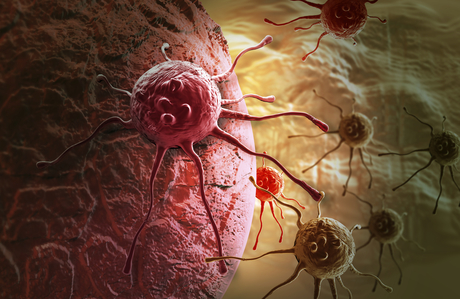Whole genome sequencing for pancreatic cancer

Scientists from Australia and the UK have used whole genome sequencing to determine the complete genetic code of pancreatic tumours in 100 patients. In the process, they have discovered the genetic changes that drive the formation of four subtypes of the disease.
Writing in the journal Nature, the study authors described pancreatic cancer as “one of the most lethal of malignancies”. It is considered largely incurable, with a median survival rate of six months and a five-year survival rate under 5%.
As part of the Australian Pancreatic Genome Initiative (APGI), a study was undertaken to examine variations in the genome present in 100 pancreatic ductal adenocarcinomas (PDACs) - the most frequently diagnosed type of pancreatic cancer. By utilising whole genome sequencing, scientists were able to view global and local DNA damage equally effectively.
The study revealed broad patterns of structural variation (disruptions to the genome) previously invisible when the team could only sequence exomes (protein-coding genes that make up around 1% of the genome). The four kinds of genomic rearrangement detected - stable, locally rearranged, scattered and unstable - were described by the Garvan Institute’s Professor Andrew Biankin as being similar to catastrophic geographical events such as volcanoes, earthquakes and storms.
“When you sequence a genome, you can tell whether a volcano, earthquake or local storm has taken place - metaphorically speaking, of course,” Professor Biankin said.
“When you only sequence exomes, you might see a fallen tree, but you will not know whether it has fallen as the result of an earthquake, a storm or other unknown factor.”
Whole genome sequencing thus gave the team “a much clearer picture than we had before,” said Professor Biankin, who suggested that “we really have to start thinking about moving to whole genome sequencing as a diagnostic imperative”.
The study found that patients with ‘unstable’ genomes - which show defective DNA repair mechanisms - tend to respond well to platinum-based drugs which damage DNA or to PARP inhibitors which prevent cells from repairing DNA. Several of the cancers were also found to have mutations amenable to treatment with drugs used for other cancers, while two novel gene mutations were observed which may offer leads for new approaches to treatment.
Professor Sean Grimmond, from The University of Queensland (UQ), said whole genome sequencing gives the researchers “unprecedented access to explore the history of each patient’s genome”. The identification of the four different subtypes means there is potential to treat each type differently, he added, with doctors potentially determining which chemotherapy drug a patient should get based on their cancer’s genome.
Professor Biankin and Professor Grimmond plan to conduct a clinical trial in the UK, selecting patients for targeted treatments based on genomic testing. Professor Biankin explained: “So for example, if we’re using a novel immunotherapy, and we don’t yet have a biomarker, we’ll give it to all patients, and we’ll test their genomes to see which ones respond and which don’t.
“We’ll also have the various genome subtypes that have come out of this study, where in some cases we can see that mutation corresponds to a particular drug target. We’ll select those patient groups and test the targeted therapy we believe should work.”
AI-designed DNA switches flip genes on and off
The work creates the opportunity to turn the expression of a gene up or down in just one tissue...
Drug delays tumour growth in models of children's liver cancer
A new drug has been shown to delay the growth of tumours and improve survival in hepatoblastoma,...
Ancient DNA rewrites the stories of those preserved at Pompeii
Researchers have used ancient DNA to challenge long-held assumptions about the inhabitants of...




